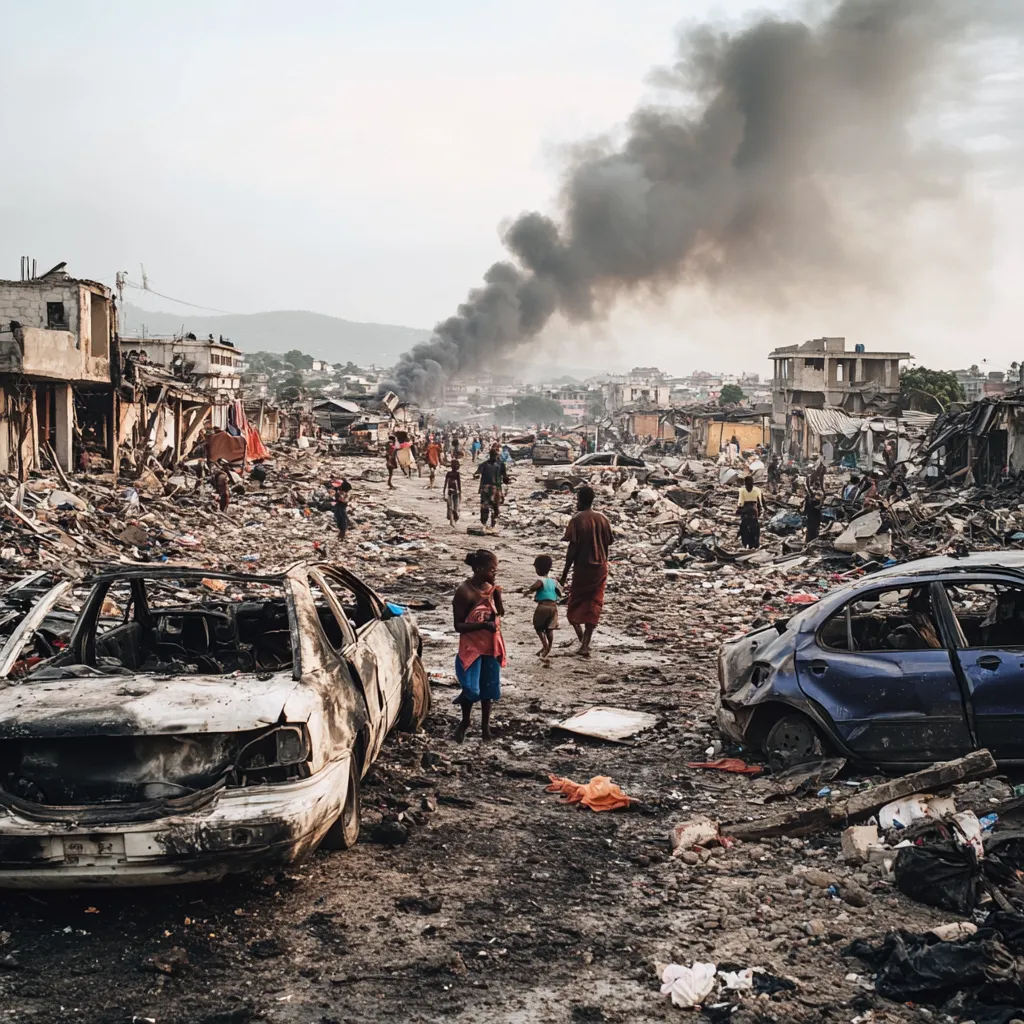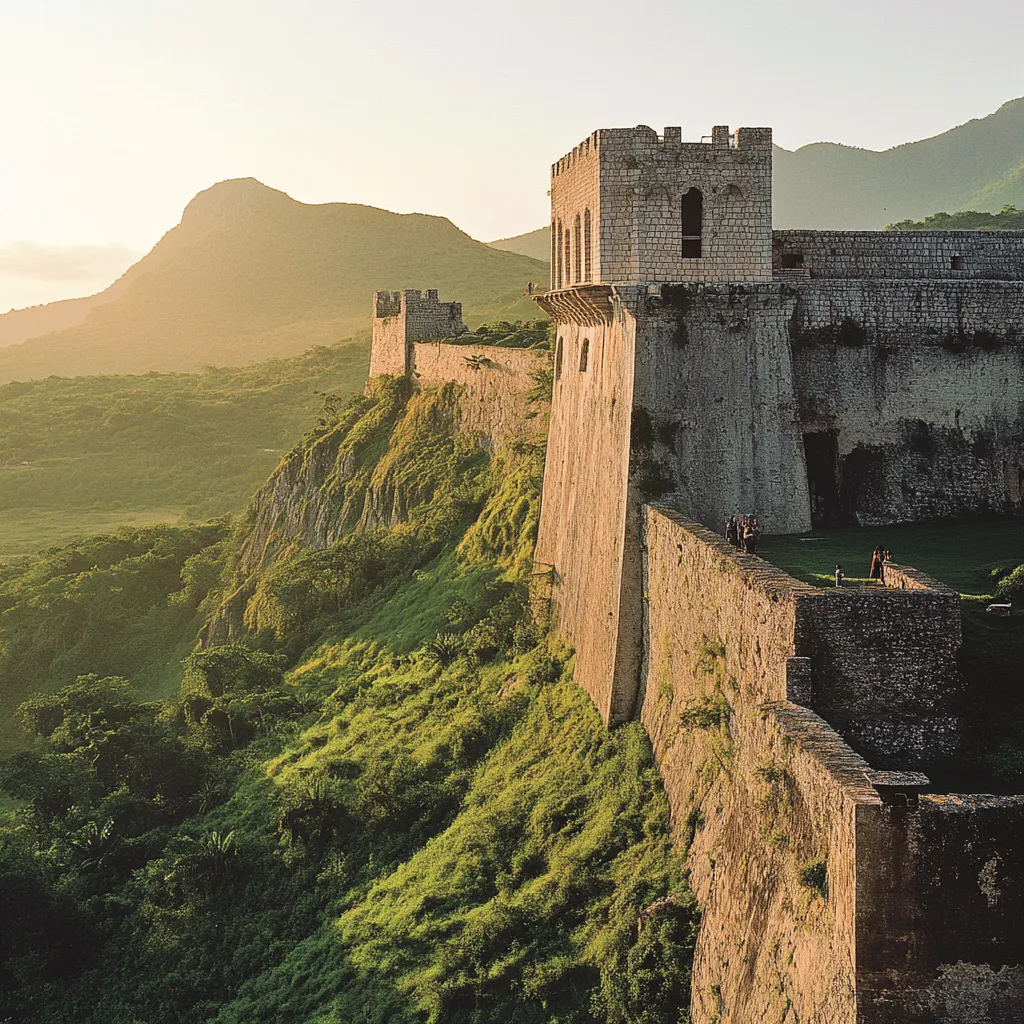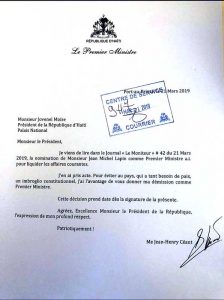The Haiti security crisis deepens as political tensions escalate and security concerns remain unresolved. Prime Minister Alix Didier has openly criticized the leadership of the Haitian National Police (PNH) for its lack of response to the deadly attack in Kenskoff.
His strong words, delivered during a visit to the police headquarters, emphasized the government’s frustration with the inaction of law enforcement despite prior intelligence warning of an impending gang assault.
A Struggle Against Gangs and Insecurity
In response to the growing violence, Didier announced a series of new security measures aimed at strengthening the fight against organized crime. One of the most notable steps taken was the deployment of a military contingent to the former Téléco facilities in Kenskoff, ensuring a permanent law enforcement presence in the area.

Speaking passionately, Didier reaffirmed his administration’s commitment to national security, stating:
“We are here to renew our commitment—to the work being done by the National Police and to the people of Haiti. Security is our number one priority. How did this happen when we had intelligence from multiple agencies warning us? We must understand so that it never happens again. Our government will provide the police with everything they need to combat these threats. Security is not a privilege; it is a right for every Haitian.”
A Failing Transition and Political Alternatives
Meanwhile, a coalition of former parliamentarians from the opposition has put forth an alternative proposal to ensure the continuity of governance.
They advocate for appointing a judge from the Court of Cassation to lead the transition, arguing that the current government has failed in its mission to restore stability. Without immediate action, they warn, Haiti risks descending further into chaos.
International Engagement and UN Support
On January 30, Prime Minister Didier met with a United Nations delegation led by Miroslav Jenča, Assistant Secretary-General for Europe, Central Asia, and the Americas.
The discussions focused on the Haiti security crisis, government initiatives, and future challenges. The UN reaffirmed its commitment to supporting Haiti’s stability and development efforts, a move seen as crucial in the face of mounting instability.
Cultural Heritage Under Threat
Haiti’s struggle is not just about security—it is also about preserving its cultural identity. On the same day, Presidential Advisor Fritz Alphonse Jean attended a symposium on cultural heritage protection, highlighting the need to safeguard the nation’s historic sites. He stressed:

“Protecting our heritage is honoring the sacrifices of our ancestors. The systematic destruction of cultural sites by criminals is an attempt to erase our identity. We must fight to preserve our historical landmarks, such as Bois Caïman and the Citadelle Laferrière, symbols of our resistance and freedom.”
This initiative aims to mobilize cultural stakeholders to address the legal and legislative challenges of heritage conservation while promoting sustainable tourism.
Haiti and France: A Complex Relationship
In an important diplomatic move, the President of Haiti’s Transitional Presidential Council, Leslie Voltaire, met with French President Emmanuel Macron in Paris on January 29. Their discussions centered on security cooperation, intelligence sharing, and combatting arms and drug trafficking.
One of the most pressing topics was the historical debt imposed on Haiti by France, with a summit scheduled for April 17, 2025, to address potential reparations.
Another critical issue raised was the recruitment of children by gangs. Haiti presented a reintegration plan for these vulnerable youths, which France has agreed to support. Both nations also discussed multinational security missions, energy cooperation, environmental projects, and law enforcement training.
A Nation at a Crossroads
As political factions debate Haiti’s future, opposition leaders insist that the transition has failed to deliver on its promises. They argue that the country cannot afford to continue on its current trajectory and call for an immediate resolution.
Yet, critics question whether these same figures took effective action when they were in power to prevent the current Haiti security crisis.
Haiti stands at a critical juncture. The decisions made in the coming weeks will determine whether the country moves toward stability or sinks further into uncertainty.
The voices of its leaders, citizens, and international allies must come together to create a viable path forward. The time for action is now.

